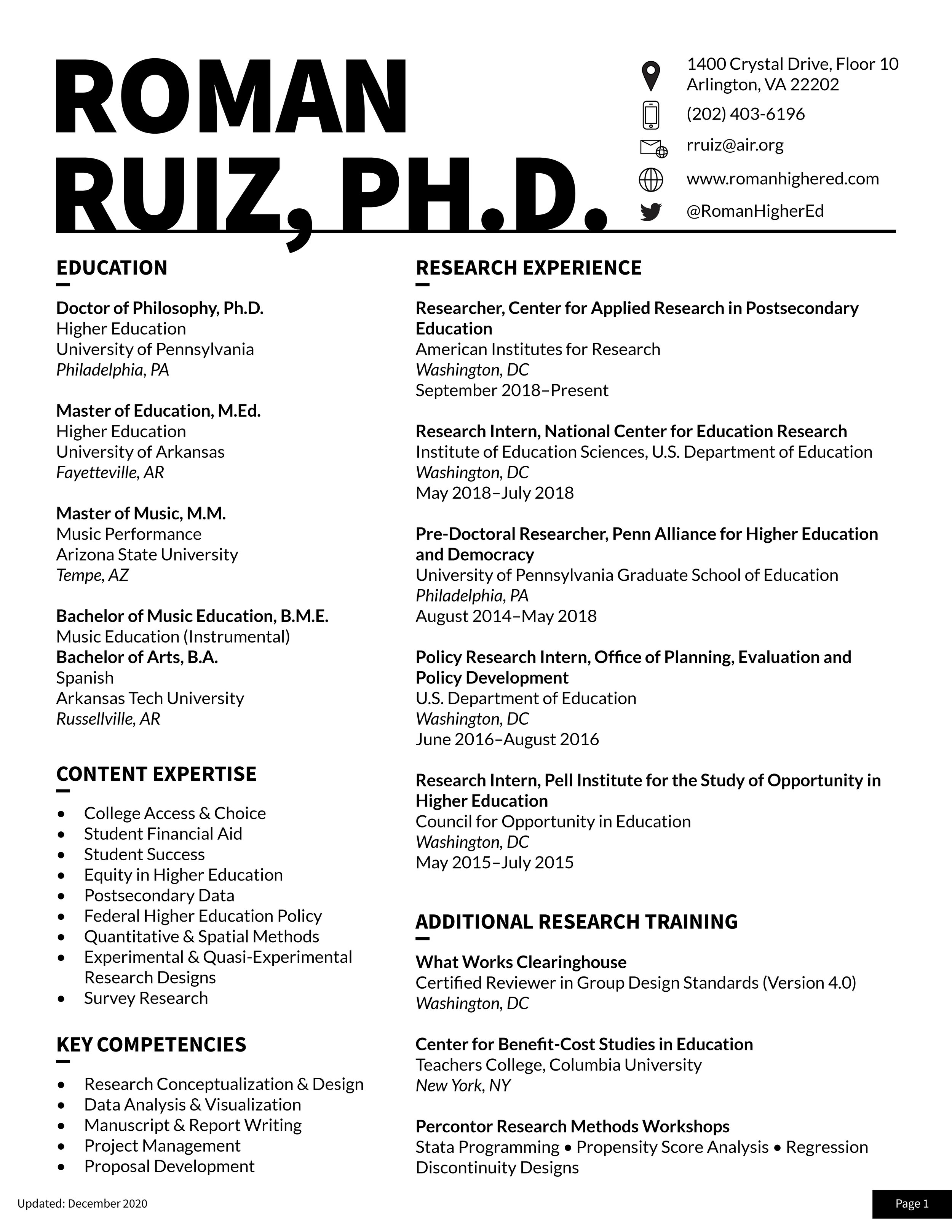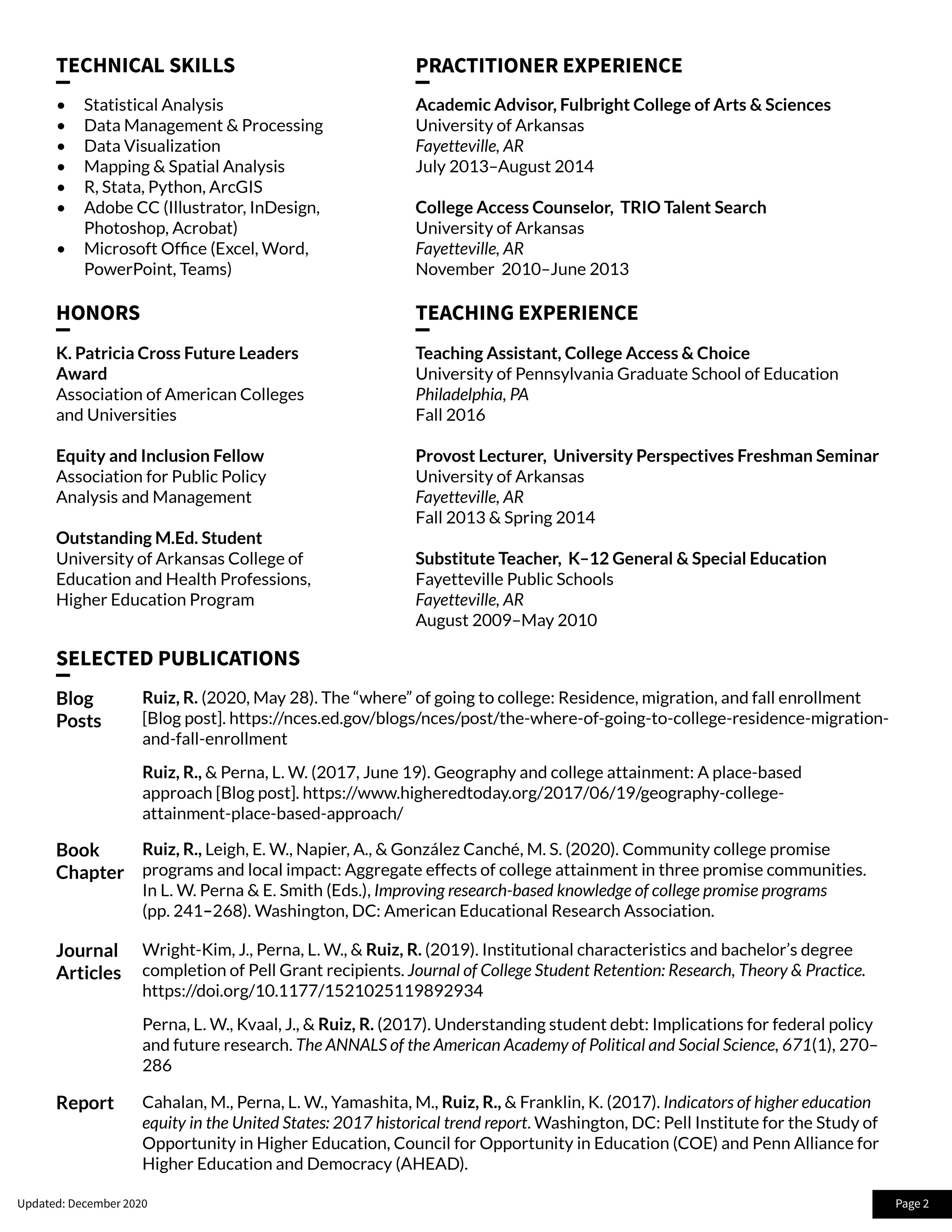Roman Ruiz created this website as a creative outlet for his varied interests: U.S. higher education, quantitative data analysis, data visualization, and graphic design. Roman's goal with this site is to illuminate important issues in U.S. higher education for a broad audience by translating innovative analyses into easy-to-understand visuals.
Bio. Roman Ruiz is a senior postsecondary education researcher at the American Institutes for Research (AIR) and holds more than 12 years’ experience in the field of higher education, both as a researcher and practitioner. Roman currently leads quantitative data analysis tasks for several research projects related to college and career readiness and postsecondary student success. He also serves as a survey director for the Integrated Postsecondary Education Data System (IPEDS) within the National Center for Education Statistics.
Primarily a quantitative researcher, Roman is adept at working with a variety of data sources (e.g., administrative, sampled, georeferenced, state longitudinal data sytem) to conduct descriptive, multivariate, and spatial analyses utilizing several software platforms (e.g., R, Stata, Tableau). Beyond conducting rigorous analyses, he is skilled at translating findings into myriad written and visual products for academic and broad audiences, including peer-reviewed journal articles (e.g., Journal of College Student Retention: Research, Theory & Practice), book chapters (e.g., American Higher Education in the Twenty-First Century), reports (e.g., Indicators of Higher Education Equity in the United States), blogs (e.g., Higher Education Today), and both static and interactive data visualizations.
Prior to joining AIR, Roman was a graduate researcher at the Penn Alliance for Higher Education and Democracy (AHEAD) at the University of Pennsylvania Graduate School of Education and held summer positions with the U.S. Department of Education’s National Center for Education Research; Office of Planning, Evaluation and Policy Development (OPEPD); and the Pell Institute for the Study of Opportunity in Higher Education. He began his career in higher education as a student services professional at the University of Arkansas, serving as a college access counselor for low-income and first-generation-to-college students in grades 7–12 (TRIO Talent Search) and later as an academic advisor for undergraduates.



